The Lotos Eaters by Alfred Lord Tennyson SummaryAlfred Tennyson, 1st Baron Tennyson, released a poem titled The Lotos-Eaters in his poetry collection 1832. It was inspired by a trip he took to Spain with his good friend Arthur Hallam where they saw the Pyrenees mountains. The poem tells the story of a group of seamen who, after consuming the lotos, enter a condition of altered consciousness and become cut off from the outer world. The lotus-eaters of Greek mythology are the source of the title and the idea. 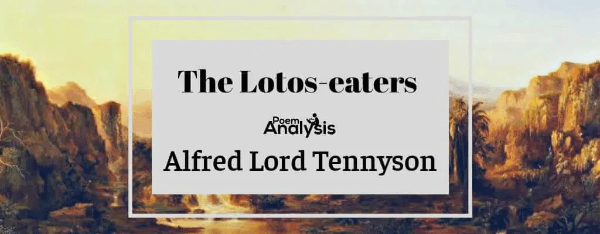
Summary:Assuring his crew that they will soon arrive at their home's coast, Odysseus advises them to be brave. In the late afternoon, they arrive at a place "in which it seemed always afternoon" due to the calm and relaxed environment. The sailors noticed this "land of streams" with its bright river flowing to the ocean, its three snow-covered mountaintops, its dark pine trees growing in the valley. The "mild-eyed melancholy Lotos-eaters," pale dark faces against the rose-colored sunset, greeted the sailors. The seamen of Odysseus are presented with the lotos flower and fruit by these lotos eaters. People who consume lotos report feeling as though they had dozed off; they sit down on the island's yellow sand and find it difficult to hear their fellow sailors talk to them since their ears are filled with only the music of their heartbeats. Although it has been pleasant to daydream about their houses in Ithaca, the lotos wear them out from roaming, so they would rather stay here. After eating a lotos fruit, one of the mariners makes the vow to "return no more," at which point all of the other mariners begin singing about the mariner's resolve to remain in the Lotos-eaters' country. The poem's remaining eight numbered stanzas, which are the mariners' choric song and show their resolve to stay forever, make up the remainder. They start by praising the soothing and hypnotic sound of the land of the Lotos-eaters and drawing comparisons between it and granite, blossoms, dew, and heavy eyelids. They query why man is the only member of nature required to labor in the second stanza. They claim that while man is tossed from one grief to another, everything else in nature can rest and remain still. The inner spirit of man knows that the only path to happiness is via peace and tranquility, but he is destined to toil and roam during his entire existence. 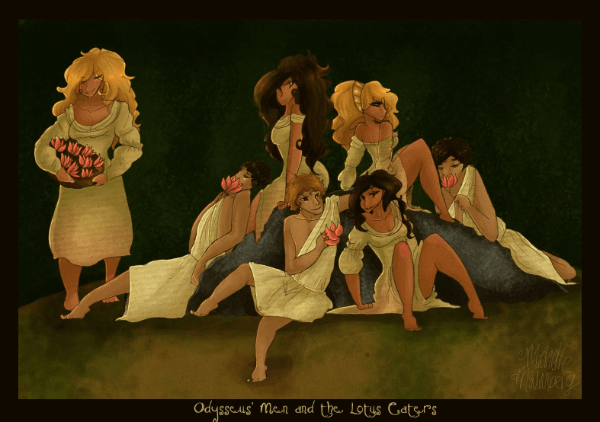
In the third stanza, the seafarers assert that everything in nature has a set amount of time to grow and decline. As instances of more living things that pass away, they point to the "folded leaf, which finally turns yellow and drifts to the soil, as well as the "full-juiced apple," which also eventually falls to the ground, and the flower, which ripens and fades. The seamen then ponder the point of a life of labor in the fourth verse because nothing is cumulative, and all our achievements are in vain. They declare that nothing in life is worthwhile since it is transient and will not last and ask, "What...will last?" In addition, the seamen express their wish for "long rest or death," which would release them from a life of nonstop toil. The seafarers exclaim how pleasant it is to live a life of constant dreaming in the fifth line, which recalls the first stanza's affirmative appeal to opulent self-indulgence. They depict what it could be like to spend the entire day doing nothing except sleeping, dreaming, eating food, and watching the surf on the beach. They may recollect all the people they once knew who are now either buried ("heaped over with a mound of grass") or burned ("two handfuls of white dust, shut in an urn of brass!"). Such a life would allow them to do so in peace. In the sixth stanza, the seafarers conclude that since their families and houses have probably already deserted them, they might as well stay in the Lotos-eaters' homeland and "let what is broken so remain." Although they had good memories of their wives and sons, after ten years of battling in Troy, their sons had likely acquired their land; for them to return at this time would only lead to turmoil and commotion. Their hearts are worn out from fighting wars and utilizing the stars to navigate the oceans, and they would rather live a peaceful, death-like existence in the Land of the Lotos than bring turmoil back to their home world. The mariners enjoy the beautiful sights and sounds of the island in the seventh stanza, much as they do in the first and fifth. They imagine how pleasant it would be to relax on flowerbeds, observe the river's course, and listen to the echos of the caves. Last but not least, the seafarers' promise to live out the remainder of their days in the "hollow Lotos land" of relaxation and leisure brings the poem to a close. In contrast to the life of abandonment they will have in Lotos land, the Gods lead carefree lives and don't give a damn about the famines, plagues, earthquakes, or other natural disasters that affect people on Earth. These gods merely smile upon men as they till the ground and reap the fruit until they either suffer in hell or reside in the "Elysian valleys" of paradise. The seamen decide to cease exploring the oceans and live in the land of the Lotos-eaters after realizing that "slumber is sweeter than toil." Background:Tennyson and Arthur Hallam journeyed into a war-torn region of northern Spain in the summer of 1829. The setting and experience impacted his works, including Oenone, The Lotos-Eaters, and Mariana in the South. 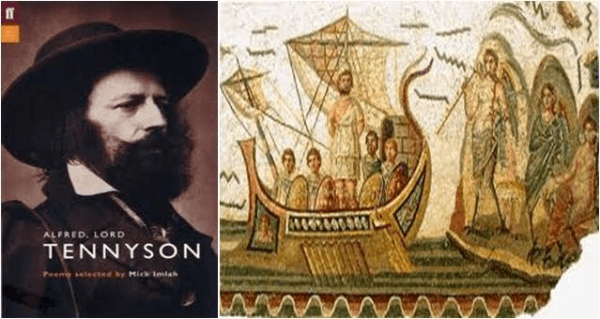
Later revisions of these three poems and a few others were made for Tennyson's 1842 anthology. Tennyson uses this modification as an opportunity to completely rework a part of The Lotos-Eaters by adding a new stanza just before the last one. The new stanza explains how one can experience a sense of wholeness even in severe loss. Some claim that the line alludes to the loss Tennyson experienced upon Hallam's passing in 1833. Themes:The poem's style, which includes a dramatic monologue, ties it to "Ulysses," "St. Simeon Stylites," and "Rizpah." Nonetheless, Tennyson modifies the monologue's structure to make it possible for ironies to be made clear. The Odyssey by Homer is where The Lotos-Eaters tale is found. Because Tennyson's seafarers can discern morals, the mariners' story in Homer's work has a different impact than Tennyson's. Their arguments relate to Despair's comments in Book One of The Faerie Queene by Edmund Spenser. Tennyson's tale portrays the seamen defying Christianity because of their relationship with Spenser. 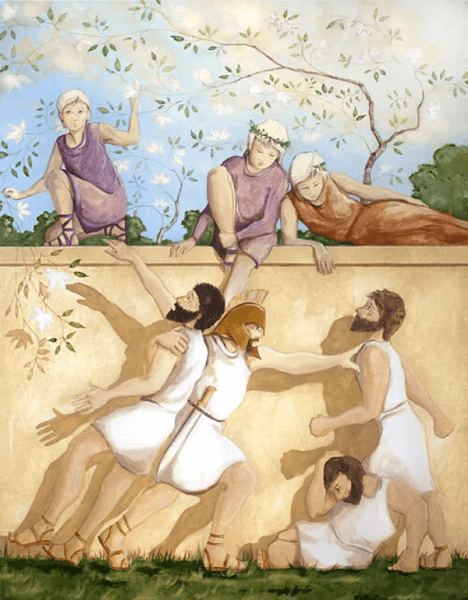
The final irony is that, according to literary critic James R. Kincaid, who maintains that the reader is the one who is truly in a pickle, both the brave Ulysses and the seafarers who eat the lotos have it easier than the reader because they, at least, can make choices and let the tension out. Ironically, Tennyson quotes The Lover's Tale line 118 from The Lotos-Eaters, "Portions and parcels of the dreadful past," in line 92 of The Lotos-Eaters: "A portion of the pleasant yesterday." In the reversal, the notion that time is a person's protector is turned around to show time as the person's destroyer. The refrain "Let us alone" also contains a variation, using repetition frantically and unfavorably rather than in the conventional comedic way. The Lotos-Eaters uses irony differently than Tennyson's The Lady of Shalott since "the Lady" has no control over her life. The seafarers in The Lotos-Eaters can argue and contend that life is completed with death. They attempt to break the strain with this argument, which adds to the tension. As a result, the seamen are both attractive and unattractive. The Lotos-Eaters are similar to both "The Hesperides" and Oenone in structure. The Lotos-Eaters adopts a similar framing to the other two, even if its plot is neither as enigmatic as "The Hesperides" nor as thorough as Oenone's. The frame is similar to "The Hesperides" in that it links two distinct realities?one of isolation and one of being a part of the world?in a single cohesive whole. Like Oenone, the frame gives the poem's melody a clear outline and allows for the coexistence of two distinct points of view that can be blended at various moments throughout the poem. To properly understand the poem, the reader is asked to assume the mariners' perspective. This is analogous to how the reader's point of view is tied to that of the characters in "The Hesperides." As a result, the reader takes part in the piece, but Tennyson needs to lead them to a certain conclusion. According to James Kincaid, "In this poem, the reader assumes the position of traveler that the seamen abandon, employing sympathy for a sail and discretion for a rudder. Additionally, if the poem is "about" the conflict between isolation and community, as many have suggested, it becomes obvious as you read it. 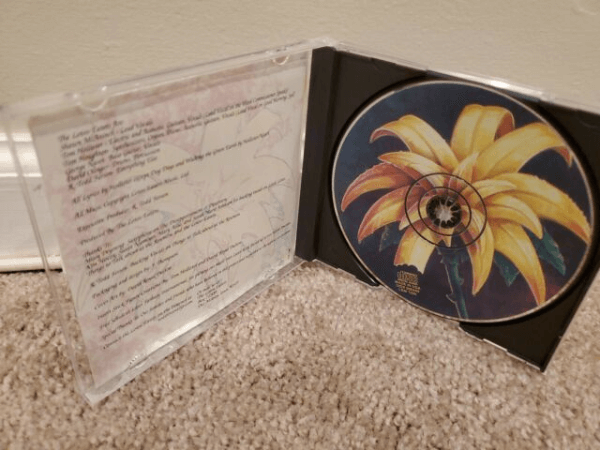
The poem explores the conflict between living alone and being a part of a community, which also affects the reader. There are numerous pictures intended to appeal to the listener in the song. This makes it possible to feel pity for the seamen. It is unclear if the seafarers are inquiring about humanity or their particular state of being when they wonder why everyone else outside them is permitted peace. When the reader cannot escape into the state of joy that comes from eating lotos, they become estranged from the mariner at that very instant. As a result, the questioning is changed into a self-pitying statement. When the seafarers attempt to unite with the rest of the world, the reader can again empathize with them. Like Keats' "To Autumn," they describe a life-until-death system of completeness but ultimately reject it. Instead of experiencing growth and completion before death, they desire to pass away. Response to Criticism:The Quarterly Review had mixed feelings about Tennyson's collection of poetry from 1832. In particular, The Lotos-Eaters were labeled as "a kind of classical opium-eaters" in John Croker's April 1833 article. According to Croker, the performers of this song must have had a rather free reign with the intoxicating fruit, who added that "our readers will, we believe, agree that this is an admirable characteristic." You have to read the passage from Homer that describes how they got home: "Mr. Tennyson, who we presume is himself a dreamy lotos-eater and a delicious lotus-eater, leaves them in full song." In Popular Culture:The opening line of the poem's "Choric Song" section was set to music for a cappella choir in 1907-8 by the romantic British composer Edward Elgar. Op. 53, No. 1's composition "There is Sweet Music" is a quasi-double choir piece in which the female chorus responds to the male choir in a different pitch. Another British romantic composer, Hubert Parry, created a half-hour-long choral adaptation of Tennyson's poem for soprano, choir, and orchestra. Youth Brigade's song "Blown Away" uses lines from the poem, including "Death is the conclusion of life; ah, why/Should life all labor be? "Let us be alone." "Let us be; what pleasure can we have in war with evil?" and "Time driveth onward fast." does peace exist? Part of the R.E.M. song "Lotus" was inspired by the poem. The great English poem "There are the lotus eaters" is about people who never engage in life as they sit by a river and ? I assume it's supposed to be about opium. Peter Buck speculated, "Perhaps there's a little of that in there. Armond reads the poem Choric Song IV in episode 5 of the HBO television series The White Lotus. It's called "The Lotus-Eaters" in the episode.
Next TopicThe Rattrap Summary Class 12 English
|
 For Videos Join Our Youtube Channel: Join Now
For Videos Join Our Youtube Channel: Join Now
Feedback
- Send your Feedback to [email protected]
Help Others, Please Share









